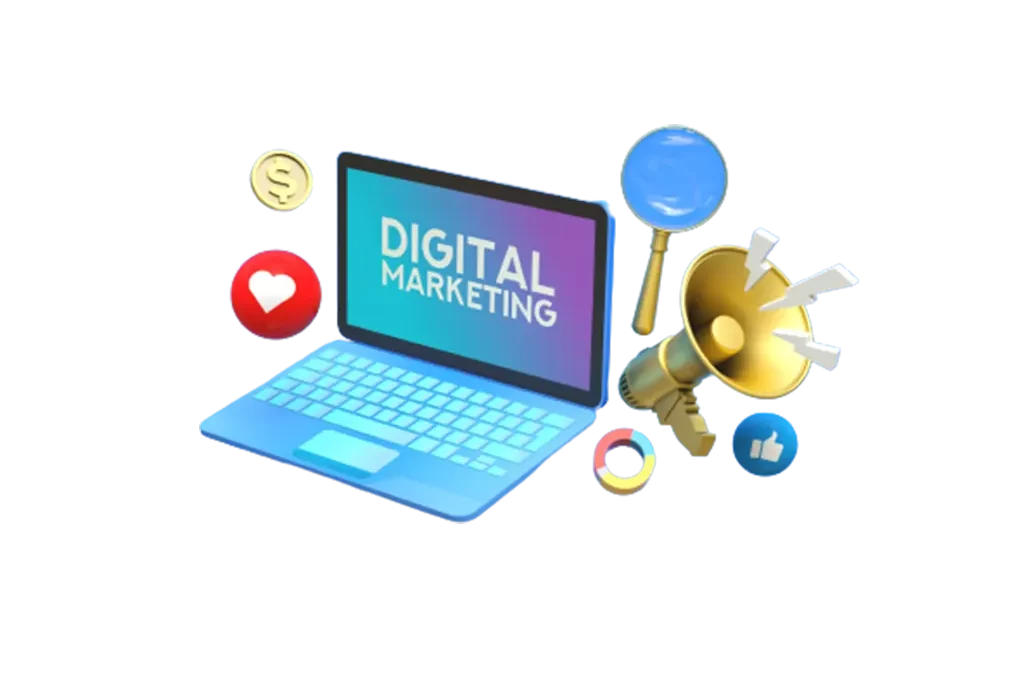
by admin | Mar 14, 2024 | Digital Marketing
In the fast-paced world of e-commerce, staying ahead of the curve is essential for businesses to thrive. With technology continuously evolving and consumer preferences shifting, it’s crucial to keep a finger on the pulse of the latest trends shaping the industry. In this blog post, we delve into some of the most impactful trends revolutionizing the e-commerce landscape.
1. Omnichannel Shopping Experience
Consumers today expect a seamless shopping experience across multiple channels, including websites, mobile apps, social media platforms, and physical stores. E-commerce businesses are increasingly adopting omnichannel strategies to provide customers with consistent and personalized interactions at every touchpoint, driving engagement and loyalty.
With the proliferation of smartphones and mobile devices, M-commerce continues to gain momentum as a preferred shopping channel. E-commerce platforms are optimizing their websites and apps for mobile compatibility, offering intuitive user interfaces, mobile-friendly payment options, and personalized shopping experiences to cater to the growing base of mobile shoppers.
Read about Ecommerce Marketing – Building & Executing a Successful E-commerce strategy
3. Voice Commerce
The rise of voice-activated virtual assistants like Amazon’s Alexa and Google Assistant has given birth to a new trend in e-commerce: voice commerce. Consumers can now shop hands-free by simply issuing voice commands to their smart devices. E-commerce businesses are integrating voice technology into their platforms to enable voice-based product searches, purchases, and recommendations, enhancing convenience and accessibility for users.
4. AI-Powered Personalization
Artificial intelligence (AI) and machine learning (ML) are revolutionizing e-commerce by enabling hyper-personalized shopping experiences. E-commerce platforms leverage AI algorithms to analyze customer data, predict preferences, and deliver tailored product recommendations, promotions, and content in real-time. This level of personalization not only enhances customer satisfaction but also drives sales and revenue for businesses.
5. Augmented Reality (AR) and Virtual Reality (VR)
AR and VR technologies are reshaping the e-commerce landscape by bridging the gap between online and offline shopping experiences. E-commerce platforms are leveraging AR and VR tools to offer immersive product visualization, allowing customers to virtually try on clothing, visualize furniture in their homes, or experience products in simulated environments before making a purchase. This immersive shopping experience enhances customer engagement and reduces the likelihood of returns.
6. Sustainability and Ethical Shopping
Consumers are increasingly prioritizing sustainability and ethical practices when making purchasing decisions. E-commerce businesses are responding to this trend by incorporating sustainable and eco-friendly practices into their operations, offering ethically sourced products, and promoting transparency in their supply chains. Brands that align with values such as environmental conservation and social responsibility are gaining traction among conscientious consumers.
7. Social Commerce
Social media platforms have become powerful e-commerce channels, allowing brands to reach and engage with customers directly through social networks. E-commerce businesses are leveraging social commerce features such as shoppable posts, live shopping events, and influencer collaborations to drive sales and conversions. Social commerce blurs the lines between social networking and online shopping, enabling seamless transactions within the social media ecosystem.
Conclusion
In conclusion, the e-commerce landscape is undergoing rapid transformation driven by technological advancements, shifting consumer behaviors, and evolving market dynamics. By embracing these latest trends and innovations, e-commerce businesses can stay competitive, enhance customer experiences, and unlock new opportunities for growth and success in the digital age.
At Gentum Media Services, we are your partner of choice when it comes to crafting ecommerce solutions with ROI, extending your sales prowess beyond brick and mortar.
About Gentum Media Services
Gentum Media Services offers state of the art Web Design and Development, Web Hosting Services, Digital Marketing, Corporate Branding and Social Media Management. Call us today on 0727345770 and let’s discuss your next project.

by admin | Sep 28, 2023 | Digital Marketing
In recent years, Kenya has witnessed a digital revolution that has significantly transformed the way businesses connect with their audience. With a growing internet penetration rate and increasing smartphone usage, the Kenyan digital marketing landscape is evolving at a rapid pace. As we step into 2024, it’s crucial for businesses to stay updated with the latest trends to remain competitive in this dynamic market. In this blog post, we will explore some of the key digital marketing trends that are shaping Kenya’s business landscape.
Read this on Linkedin.
- Mobile-First Approach
Kenya has one of the highest mobile phone penetration rates in Africa, with millions of Kenyans accessing the internet via their smartphones. As a result, businesses are increasingly adopting a mobile-first approach in their digital marketing strategies. This includes optimizing websites for mobile, creating mobile-friendly content, and leveraging SMS and mobile apps for marketing campaigns.
- Social Commerce
Social media platforms have become powerful tools for driving e-commerce sales. Kenyan businesses are tapping into this trend by integrating their products and services directly into their social media profiles. With the ease of in-app shopping, customers can now discover, research, and purchase products without leaving their favorite social media platforms.
- Influencer Marketing
Influencer marketing has gained substantial traction in Kenya. Influencers with large followings on platforms like Instagram, TikTok, and YouTube are collaborating with brands to promote products and services. These partnerships not only increase brand awareness but also build trust among consumers who value the opinions of influencers they follow.
- Video Marketing
Video marketing continues to be a dominant force in digital marketing. Kenyan businesses are creating engaging video content to reach their target audience. Short-form videos, live streaming, and storytelling through video are all popular strategies that allow brands to connect with consumers on a more personal level.
- Chatbots and AI
Customer service is a critical aspect of digital marketing, and Kenyan businesses are turning to chatbots and AI-powered tools to enhance their customer support processes. These AI-driven chatbots can provide quick responses to customer inquiries, offer product recommendations, and even complete purchases, improving the overall customer experience.
- E-commerce and Online Marketplaces
The growth of e-commerce in Kenya is undeniable, with online marketplaces becoming a preferred shopping destination for many consumers. Businesses are expanding their online presence by selling through popular e-commerce platforms, ensuring a wider reach and easier access to potential customers.
- Personalization and Data-Driven Marketing
Personalization is key to engaging today’s consumers. Digital marketers in Kenya are harnessing the power of data to create tailored marketing campaigns. By analyzing customer behavior and preferences, businesses can deliver personalized content and offers, increasing the chances of conversion and customer loyalty.
- Content Marketing
High-quality, relevant content remains the cornerstone of successful digital marketing strategies in Kenya. Businesses are investing in creating informative and entertaining content to engage their target audience. Blog posts, infographics, podcasts, and newsletters are all being used to provide value to customers and establish authority in their respective industries.
Conclusion
The digital marketing landscape in Kenya is evolving rapidly, presenting both opportunities and challenges for businesses. To stay competitive in this dynamic environment, it’s essential for businesses to adapt to the latest trends and technologies. From a mobile-first approach to the power of influencer marketing, the Kenyan digital marketing scene is a vibrant and exciting space for businesses looking to connect with their audience and drive growth in 2023 and beyond. Embracing these trends can be the key to success in this digital era.
About Gentum Media Services
Gentum Media Services offers state of the art Web Design and Development, Web Hosting Services, Digital Marketing, Corporate Branding and Social Media Management. Visit our website at https://gentum.co.ke/

by admin | Aug 20, 2023 | Digital Marketing
Online Shopping: In recent years, the e-commerce landscape in Kenya has witnessed a remarkable transformation, offering consumers a convenient and cost-effective way to shop. With the rise of online shopping platforms and a growing internet penetration rate, Kenyan shoppers are increasingly turning to their screens for everything from groceries to fashion, electronics, and more. In this article, we’ll explore the booming world of online shopping in Kenya, its benefits, and how to make the most of it while keeping SEO in mind.
The Online Shopping Revolution in Kenya
Online shopping in Kenya has evolved from a niche market to a mainstream trend. Factors like improved internet infrastructure, increased smartphone usage, and the emergence of reliable payment methods have propelled this revolution. Leading e-commerce platforms like Jumia, Kilimall, and Masoko have become household names, offering a wide range of products at competitive prices.
Convenience at Your Fingertips
One of the primary reasons for the popularity of online shopping in Kenya is the convenience it offers. Shoppers can browse a vast catalog of products, compare prices, and make purchases from the comfort of their homes. This is especially valuable for those with busy lifestyles or limited access to physical stores.
Access to a Diverse Marketplace
Online shopping connects Kenyan consumers with a diverse marketplace, enabling them to access products from both local and international sellers. This means you can find unique items, rare imports, and a wide variety of choices that might not be available in your local stores.
Cost Savings and Discounts
Many e-commerce platforms offer discounts, deals, and special offers that can lead to significant cost savings. Additionally, the absence of physical store overheads often results in lower prices for online products. Savvy shoppers can take advantage of these savings.
Tips for a Successful Online Shopping Experience
a. Do Your Research: Before making a purchase, research the product, read reviews, and compare prices on different websites.
b. Check for Secure Payment Options: Ensure that the online store you’re using offers secure payment methods to protect your financial information.
c. Beware of Scams: Be cautious of deals that seem too good to be true, and only buy from reputable websites.
d. Track Your Orders: Keep an eye on the status of your orders and take note of delivery timelines.
e. Take Advantage of Customer Support: If you have any questions or issues, don’t hesitate to reach out to customer support for assistance.
SEO-Friendly Practices for Online Retailers in Kenya
If you’re an online retailer looking to optimize your website for search engines and attract more Kenyan shoppers, here are some SEO-friendly practices to consider:
a. Keyword Research: Identify relevant keywords that Kenyan shoppers use when searching for products online.
b. Quality Content: Create high-quality, informative product descriptions and blog content that includes these keywords.
c. Mobile Optimization: Ensure that your website is mobile-friendly, as many Kenyan consumers access online stores through smartphones.
d. Local SEO: Optimize your website for local search by including your physical location, contact details, and Kenyan-specific keywords.
e. Site Speed: Speed up your website’s loading time to improve user experience and SEO rankings.
Conclusion:
Online shopping in Kenya is no longer just a trend; it’s a way of life for many. With its convenience, cost savings, and access to a diverse marketplace, it’s no wonder that Kenyan consumers are embracing this digital shopping revolution. For online retailers, understanding and implementing SEO-friendly practices can help capture the attention of this growing market and drive success in Kenya’s e-commerce landscape. Whether you’re a shopper or a seller, online shopping in Kenya is poised to continue its remarkable journey of growth and innovation.
Need Help With Online Shopping Strategy?
Gentum Media Services is a leading web design, web hosting and digital marketing firm. We offer state of the art Web Design and Development, Web Hosting Services, Digital Marketing, Corporate Branding and Social Media Management. Engage us to support your business stand out with a well thought out online marketing strategy.
Talk to us today and let us discuss your big project.

by admin | Jul 9, 2023 | Digital Marketing
Online marketing is essential for businesses of all sizes in Kenya. If you’re not visible online, you’re missing out on a huge potential market.
This blog post will provide you with a guide to online marketing in Kenya. We’ll discuss the different channels you can use to reach your target audience, as well as some tips for creating effective campaigns.

The different channels of online marketing
There are many different channels you can use to reach your target audience online. Here are a few of the most popular:
- Search engine optimization (SEO): SEO is the process of optimizing your website so that it ranks higher in search engine results pages (SERPs). This is a great way to attract organic traffic to your website.
- Social media marketing: Social media is a great way to connect with your target audience and build relationships. You can use social media to share your content, run contests, and engage with your followers.
- Pay-per-click (PPC) advertising: PPC advertising is a way to pay for your website to appear at the top of SERPs for specific keywords. This is a great way to reach people who are already searching for what you offer.
- Email marketing: Email marketing is a great way to stay in touch with your customers and promote your products or services. You can use email marketing to send out newsletters, announcements, and special offers.
Tips for creating effective online marketing campaigns
When creating online marketing campaigns, there are a few things you’ll want to keep in mind:
- Know your target audience: Who are you trying to reach with your campaigns? What are their needs and interests? Once you know who you’re targeting, you can tailor your campaigns accordingly.
- Set clear goals: What do you want to achieve with your campaigns? Do you want to increase website traffic? Generate leads? Increase sales? Once you know your goals, you can track your progress and see what’s working and what’s not.
- Create high-quality content: The content you create is essential for your online marketing campaigns. Make sure your content is informative, engaging, and relevant to your target audience.
- Track your results: It’s important to track the results of your online marketing campaigns so you can see what’s working and what’s not. This information can help you improve your campaigns over time and get better results.
Conclusion
Online marketing is a powerful tool that can help businesses of all sizes in Kenya reach their target audience and achieve their business goals. By following the tips in this blog post, you can create effective online marketing campaigns that will help you grow your business.
Looking for a Reliable Online Marketing Partner?
If you’re ready to learn more about online marketing in Kenya, contact us today. We at Gentum Media Services will help you create a custom digital marketing strategy that will help you reach your target audience and achieve your business goals.
We offer state of the art Web Design and Development, Web Hosting Services, Digital Marketing, Corporate Branding and Social Media Management. Engage us to support your business stand out with a responsive and user friendly website.
Talk to us today and let us discuss your big project.

by admin | Jul 9, 2023 | Digital Marketing
Introduction to Digital Marketing in Kenya
In today’s digital age, it’s more important than ever for businesses to have a strong online presence. If you’re not visible online, you’re missing out on a huge potential market.
That’s where digital marketing comes in. Digital marketing is the use of online channels to reach your target audience and promote your business. It includes a variety of channels, such as search engine optimization (SEO), social media marketing, and pay-per-click advertising.
If you’re looking to get your business found online, digital marketing is essential. In this blog post, we’ll discuss the benefits of digital marketing in Kenya and how to get started.

Benefits of digital marketing in Kenya
There are many benefits to digital marketing in Kenya. Here are a few of the most important:
- Increased visibility: Digital marketing can help you increase your visibility online, which means more people will be able to find your business. This can lead to more leads and sales.
- Targeted reach: Digital marketing allows you to target your marketing efforts to specific demographics, interests, and locations. This means you can reach the people who are most likely to be interested in your products or services.
- Measurable results: Digital marketing is measurable, so you can track the results of your campaigns and see what’s working and what’s not. This information can help you improve your campaigns over time and get better results.
- Cost-effective: Digital marketing can be very cost-effective, especially when compared to traditional marketing methods. You can reach a large audience with a small investment.
How to get started with digital marketing in Kenya
If you’re ready to get started with digital marketing in Kenya, here are a few steps you can take:
- Do your research: Before you start any marketing campaign, it’s important to do your research and understand your target audience. What are their needs and interests? Where do they spend their time online?
- Set goals: What do you want to achieve with your digital marketing campaigns? Do you want to increase website traffic? Generate leads? Increase sales? Once you know your goals, you can tailor your campaigns accordingly.
- Choose the right channels: There are many different digital marketing channels available, so it’s important to choose the right ones for your business. Some popular channels include SEO, social media marketing, and pay-per-click advertising.
- Create high-quality content: The content you create is essential for your digital marketing campaigns. Make sure your content is informative, engaging, and relevant to your target audience.
- Track your results: It’s important to track the results of your digital marketing campaigns so you can see what’s working and what’s not. This information can help you improve your campaigns over time and get better results.
Conclusion
Digital marketing is an essential tool for businesses of all sizes in Kenya. If you’re looking to get your business found online, digital marketing is the way to go. By following the steps outlined in this blog post, you can get started with digital marketing and start seeing results.
Looking for a Reliable Digital Marketing Partner?
If you’re ready to learn more about digital marketing in Kenya, contact us today. We at Gentum Media Services will help you create a custom digital marketing strategy that will help you reach your target audience and achieve your business goals.
We offer state of the art Web Design and Development, Web Hosting Services, Digital Marketing, Corporate Branding and Social Media Management. Engage us to support your business stand out with a responsive and user friendly website.
Talk to us today and let us discuss your big project.

by admin | May 18, 2023 | Digital Marketing, news, Web design
The phrase “progress, not perfection” emphasizes the importance of focusing on continuous improvement rather than striving for flawless outcomes. It recognizes that achieving perfection is often unrealistic and can hinder growth and productivity. Here are a few key aspects related to the concept of progress over perfection:
- Growth Mindset: Embracing a growth mindset means understanding that progress and learning come from taking risks, making mistakes, and continuously improving. Instead of being deterred by failures or setbacks, a growth mindset encourages individuals to view them as opportunities for growth and development.
- Continuous Improvement: The concept of progress encourages an iterative approach to improvement. It involves consistently assessing and refining one’s skills, knowledge, and processes over time. By focusing on incremental progress, individuals and organizations can achieve meaningful advancements and sustainable results.
- Overcoming Perfectionism: Perfectionism can be paralyzing, causing individuals to fear making mistakes or taking action unless they are certain of flawless results. Progress, not perfection, encourages individuals to move forward despite imperfections and to recognize that mistakes are valuable learning experiences.
- Iterative Problem-Solving: In many areas of life, progress is achieved through iterative problem-solving. By taking small steps, gathering feedback, and making adjustments along the way, individuals and teams can make steady progress towards their goals. This approach allows for flexibility, adaptation, and innovation.
- Focus on Effort and Learning: Progress-oriented thinking emphasizes the importance of effort and learning rather than solely focusing on the end result. Acknowledging and celebrating the effort put into personal or professional growth, regardless of the outcome, fosters resilience, motivation, and a sense of accomplishment.
- Celebrating Milestones: Recognizing and celebrating milestones along the journey of progress helps maintain motivation and a positive mindset. By acknowledging and appreciating the progress made, individuals can stay motivated and inspired to continue their efforts.
- Balance and Well-being: Striving for perfection often leads to stress, burnout, and a sense of inadequacy. Progress-oriented thinking promotes a healthier balance by acknowledging that it’s essential to take breaks, practice self-care, and maintain overall well-being while pursuing goals and personal development.
In summary, the concept of progress over perfection encourages a growth mindset, continuous improvement, overcoming perfectionism, iterative problem-solving, focusing on effort and learning, celebrating milestones, and maintaining balance and well-being. By embracing progress as a guiding principle, individuals can foster personal and professional growth, achieve sustainable results, and cultivate a positive and adaptive mindset.
The Digital Marketing Agency Services
Gentum Media Services offers state of the art Web Design and Development, Web Hosting Services, Digital Marketing, Corporate Branding and Social Media Management. Specific to this article, we are happy to support your business How to Setup Your Email Program.
Talk to us today and let us discuss your big project.








